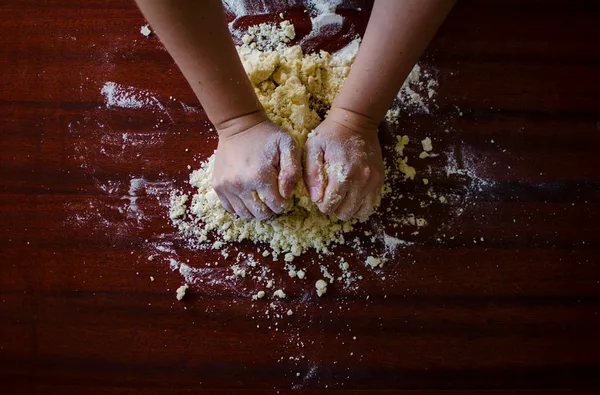Study: Raw Flour Linked to E. coli Food Poisoning

A new study published in the New England Journal of Medicine last week reveals that raw flour is the cause of bacteria—specifically Shiga toxin-producing E. coli bacteria (STEC). STEC can enter the human body when consuming uncooked foods such as cookie dough and cake batter, delicacies that have traditionally been known to cause illness due to another raw food item—eggs.
The research was prompted after General Mills recalled three of its flour products—Gold Medal, Signature Kitchen’s, and Gold Medal Wondra—in June and July of 2016. Over 10 million pounds of flour was pulled from store shelves after a multistate E. coli outbreak was linked to at least 56 reports of illness in 24 states.
The study was led by Samuel J. Crowe, Ph.D along with a team of researchers at the Centers for Disease Control and Prevention. They analyzed the STEC outbreak and its association with raw, contaminated flour. Researchers found that there was an increased risk of STEC for consumers who had eaten one of General Mills’ flour brands. The risk for illness was also higher for those who had sampled uncooked cake batter or cookie dough. The specific strain found in ill consumers, the aforementioned flours, and the food samples were all confirmed by use of whole-genome sequencing.
According to the U.S. Food and Drug Administration, flour—which derives from a grain that originates in the field—is not usually treated to kill any possible presence of bacteria. This means that if animal feces comes into contact with the grain, it is still harvested and made into flour. This is why proper cooking methods such as baking, frying and roasting are so important—these methods will kill bacteria, thus preventing illness.
For advice on safely preparing, cooking and consuming products with raw flour, see the U.S. Food and Drug Administration’s official tips.
Related articles:
General Mills Recalls 10 Million Pounds of Flour Due to E. coli
More E. coli Illnesses Prompt General Mills Recall Expansion
Sign up for Food Safety Magazine’s bi-weekly emails!
Subscribe to our podcast: Food Safety Matters!
Looking for quick answers on food safety topics?
Try Ask FSM, our new smart AI search tool.
Ask FSM →






